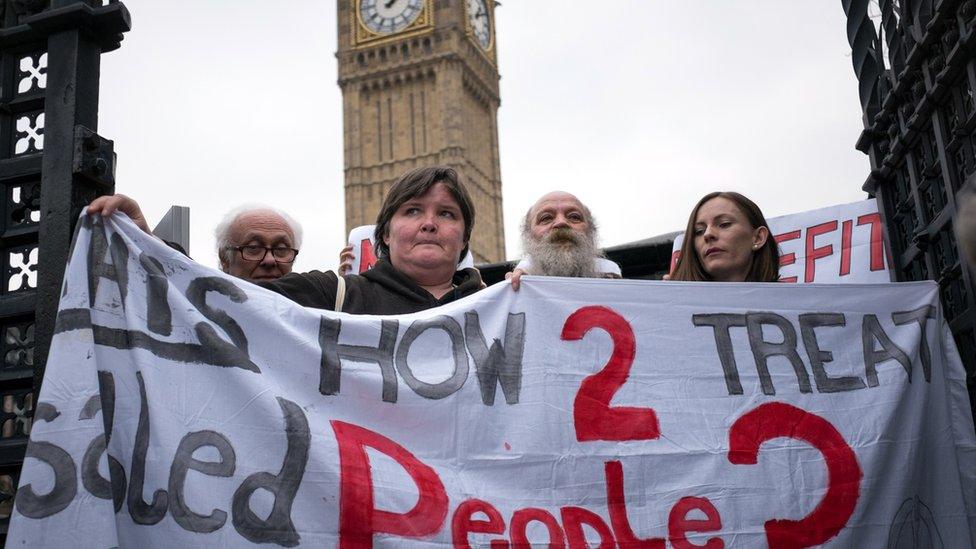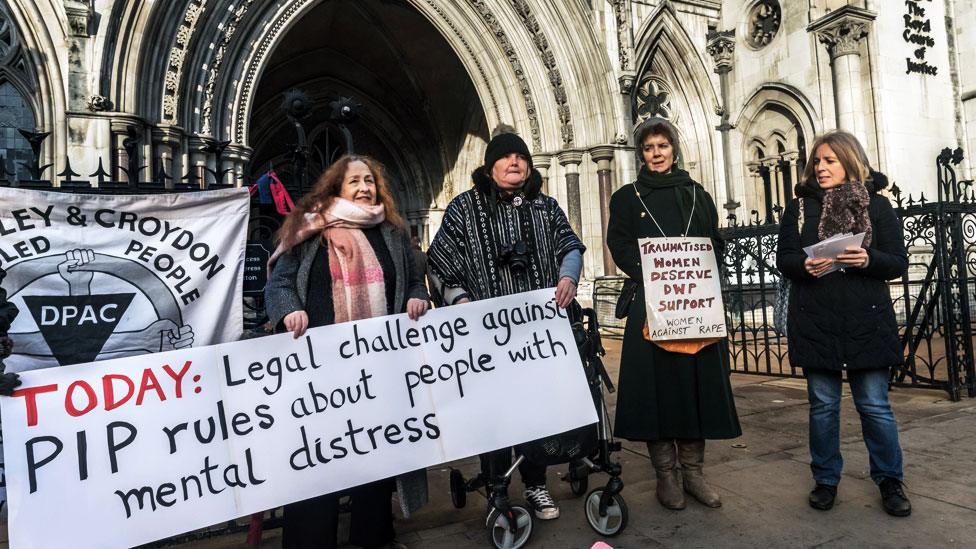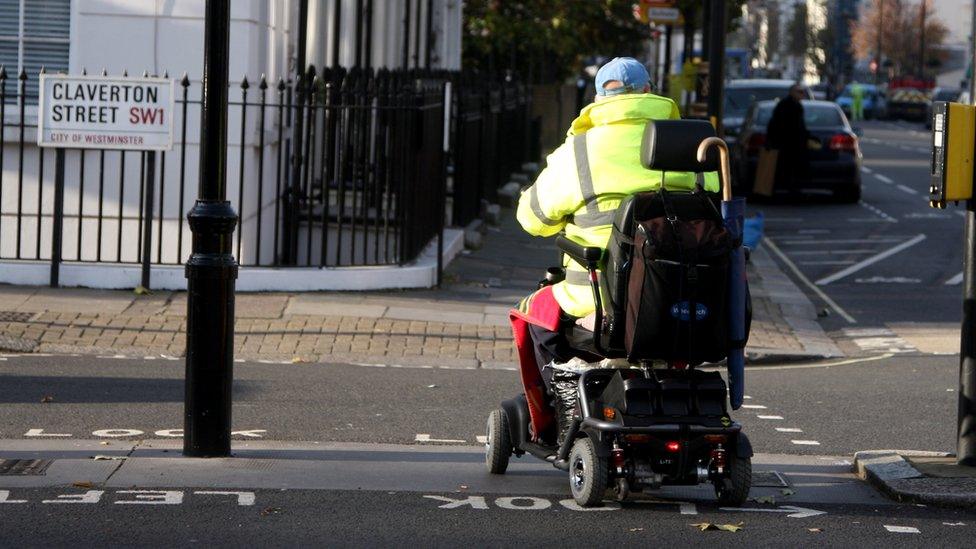PIPs: Benefit claimants share their stories
- Published

Every person receiving Personal Independence Payments (PIP) is to have their claim reviewed.
This follows a decision by the Department for Work and Pensions not to challenge a court ruling saying changes to PIP - which limited the support received by people with mental health conditions - were unfair.

Analysis: By Nikki Fox, disability news correspondent
The government's announcement to review all claims for PIP is not, as it may seem at first glance, a complete overhaul of the system.
This judgement won't affect people with physical disabilities, but the DWP will be going through everyone currently in receipt of PIP to narrow the 1.6 million claims down to approximately 220,000 people it thinks will be affected.
The DWP has told me it will prioritise claimants who were disallowed PIP over those already in receipt of the award.

Three people tell us about the issues they have faced when claiming PIP.
Vicky Smith lives in Newcastle upon Tyne. She has ulcerative colitis and wears a stoma. Dealing with excruciating pain on a daily basis, means that she's sometimes bedridden.

Vicky is cautiously optimistic about the review
Vicky originally received the old Disability Living Allowance at a higher rate. This also included a Motability vehicle.
Everything changed when PIP was introduced and she was sent for an assessment.
"The assessor ruled that because most of my 'issues' were caused by mental health problems I didn't meet the criteria for the higher rate of PIP," she says.
"I had to hand back my vehicle which I relied on greatly and accept a drop in support from payments."
An appeal left Vicky feeling distraught and embarrassed.
"I felt like my mental health was irrelevant. I was made to feel like I was being a burden to the system.
"I had even supplied letters from my GP, health psychologist and consultants which stated I depended on my vehicle and I was not fit to return to work.
"It didn't help that the process was carried out by non-medical staff. How can someone with no medical training decide I simply don't meet the relevant criteria and therefore will not be awarded the amount of points needed to be awarded the higher-rate mobility?"
Although she might not be affected by this review, Vicky remains optimistic that the ruling will aid all whose claims have been reduced.

Dean Mahon says a review is 'humiliating'
Dean Mahon lives in Rhos-on-Sea, North Wales. He has received the higher rate of PIP since 2016 after being medically discharged from the army.
He suffered a broken back and was also diagnosed with post-traumatic stress disorder.
Even with those injuries, it was difficult to make a claim.
"PIP is notoriously difficult to get in the first place and re-assessments are always at the forefront of your mind," he says.
"It's humiliating and you get the feeling the government don't know what they're doing."
You might also be interested in:
Sue Doughty lives in Twyford, Berkshire. She has multiple sclerosis.
Like Vicky, Sue originally received Disability Living Allowance, but when that changed to PIP, Sue's benefit was cancelled.
She faced homelessness and had to rely on help from her daughter.
Following a year spent in appeal, the Court of Tribunal awarded Sue PIP ongoing for life.
"After a year of assessment and processing involving a nightmare of financial risk, I finally got a mean and begrudging written assurance from the DWP," she says.
"I don't ever want to go through that again."
By Bernadette McCague, UGC and Social News team
- Published30 January 2018

- Published21 March 2016
